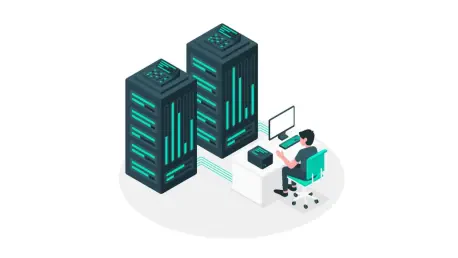In recent years, Milan has gradually emerged as an unexpected contender in the race to become Europe’s leading data center hub. Once overshadowed by traditional strongholds like Frankfurt, London, Amsterdam, Paris, and Dublin, Milan has begun to attract the attention of global data center hyperscalers seeking to capitalize on its unique advantages. As the data center industry continues to expand, Milan’s promising energy landscape, progressive regulatory environment, availability of skilled labor, and attractive real estate market make it a significant focal point for investment in this sector. With these factors at play, Milan is poised to redefine its image, transitioning from a city primarily known for fashion and design to a cornerstone of technological advancement and infrastructure.
Energy and Sustainability Driving Trends
Milan’s energy landscape forms a cornerstone of its appeal to data center developers and investors. Known for its strong production capabilities in hydroelectric and solar sources, the Lombardy region is a hub of renewable energy innovation. It provides operators with an opportunity to minimize carbon footprints while meeting increasingly strict environmental standards. This innovative stance is supported by a substantial €200 million fund devoted to promoting green technology acquisitions. Renewable energy is further facilitated by stable energy prices alongside policies that favor power purchase agreements (PPAs), promising long-term cost efficiency. Moreover, with Europe’s focus shifting towards sustainability, Milan’s robust infrastructure aligns with EU green mandates, simplifying compliance and reducing operational hurdles. The region’s emphasis on eco-friendly practices, such as heat recovery and water conservation, ensures adherence to EU benchmarks, encouraging sustainable long-term business prospects.
Regulatory and Labor Advantages
The regulatory environment in Milan offers substantial incentives for data center operators. Although EU sustainability mandates apply broadly, Milan’s strategic focus on renewables streamlines adherence, making compliance less cumbersome. Local initiatives targeting green construction, heat recovery, and water conservation are instrumental in aligning projects with EU standards. These efforts not only make regulatory compliance more attainable but also help future-proof projects against evolving environmental norms. Concerning labor, Milan boasts a competitive edge in terms of skilled workforce availability and labor cost efficiency. Notably, Italian labor costs are projected to rise at a slower pace compared to other eurozone nations, offering significant financial relief over long-term engagements. Collaboration with educational institutions provides a steady talent pipeline, mitigating reliance on external contractors and enhancing operational efficiency in staffing. Together, these regulatory and labor dynamics position Milan as a favorable destination for data center expansion.
Real Estate and Practical Considerations
Beyond energy and regulation, Milan’s real estate market presents robust growth opportunities. Relative affordability, especially when juxtaposed with other European hubs, makes it attractive for expansive projects. Initiatives promoting brownfield redevelopment further bolster its appeal, allowing operators to leverage existing infrastructures while contributing to urban revitalization. This beneficial environment led to Milan’s data center capacity expanding significantly in 2025, even surpassing growth observed in other burgeoning hubs like Madrid and Warsaw. When establishing operations, investors are advised to consider strategic site selection for optimized connectivity and conformity with sustainability directives. Local partnerships play a crucial role in unlocking grants and incentives, further enhancing project feasibility. Embracing innovative staffing approaches can also effectively address labor shortages, retaining Milan’s competitive edge. Collectively, these elements craft an appealing narrative for Milan, supporting its evolution into a top destination for data center investment.
Milan’s Path Forward
Milan’s regulatory landscape provides strong incentives for data center operators. While EU sustainability mandates are broadly enforced, Milan’s focus on renewable energy simplifies compliance, reducing the complexities involved. Local efforts in green construction, heat recovery, and water conservation are pivotal in integrating projects with EU standards, facilitating easier compliance and future-proofing them against evolving environmental guidelines. Milan also has a competitive advantage concerning labor, with a skilled workforce readily available and labor costs remaining advantageous; notably, Italian labor costs have a slower projected growth rate compared to other eurozone countries. This slow increase provides substantial financial relief in the long term. Additionally, partnerships with educational institutions offer a continuous talent supply, reducing dependence on external contractors and boosting operational efficiency in staffing. These favorable regulatory and labor conditions position Milan as an ideal location for expanding data center operations.









